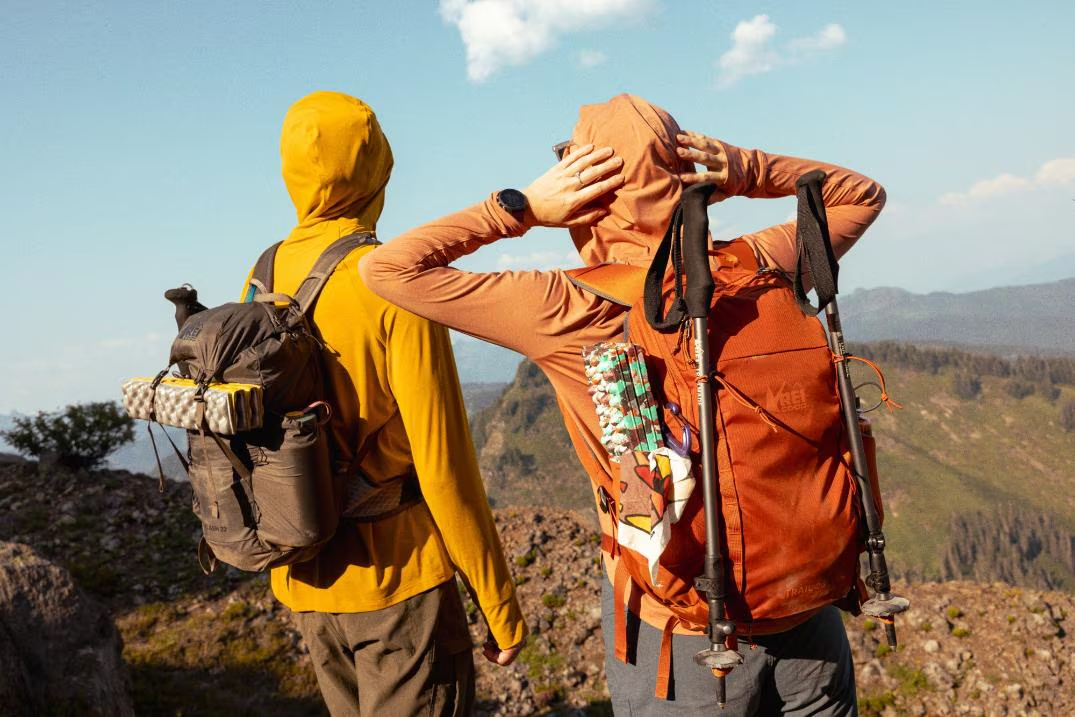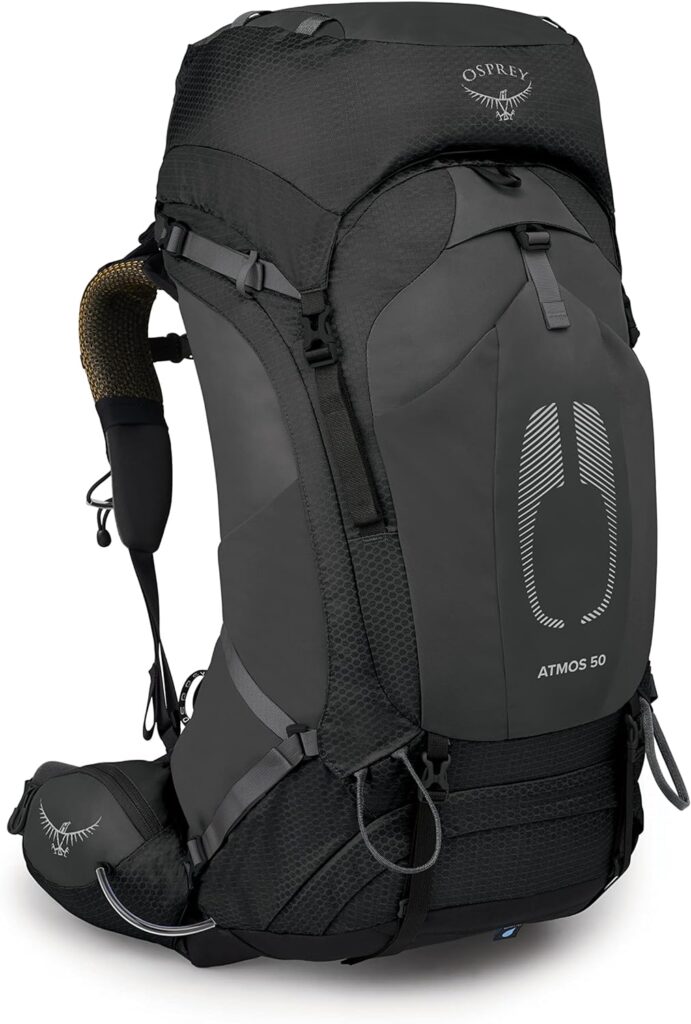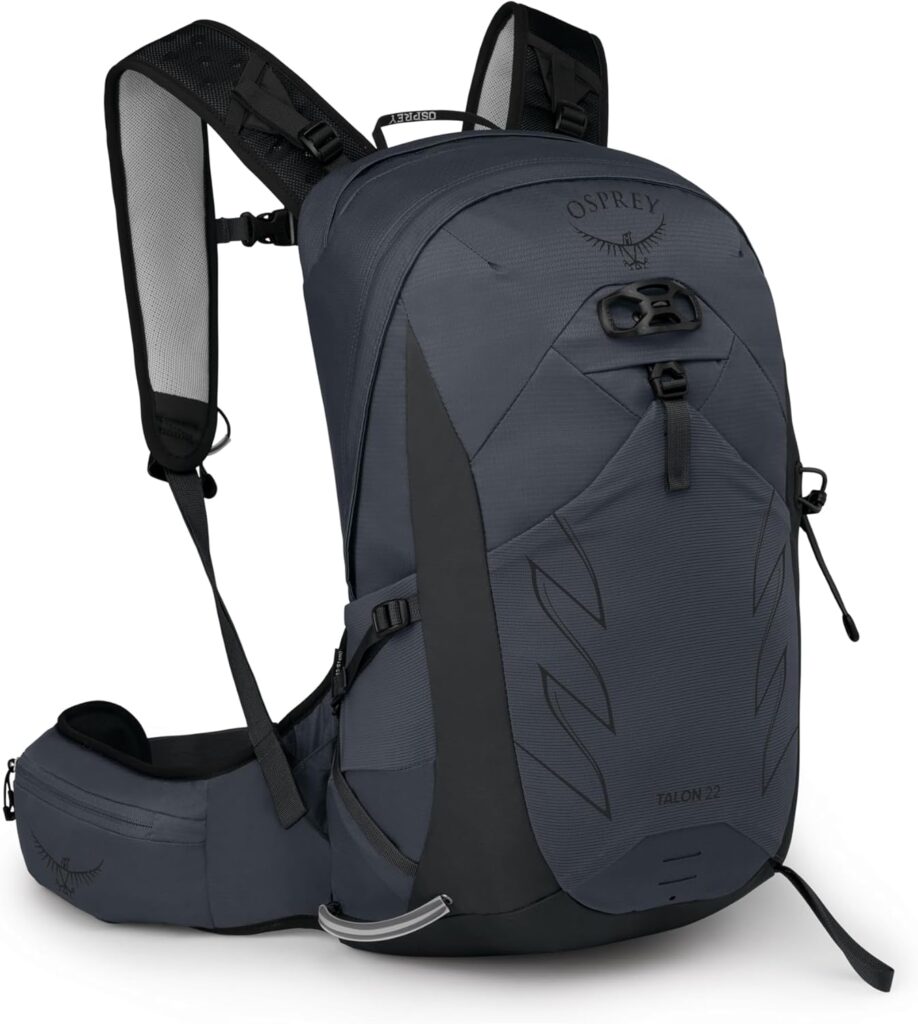<script type="text/javascript" src="http://classic.avantlink.com/affiliate_app_confirm.php?mode=js&authResponse=c4e13e1b9b5acdedad16d533a16f7bf0c234d607"></script>
<script type="text/javascript" src="http://classic.avantlink.com/affiliate_app_confirm.php?mode=js&authResponse=c4e13e1b9b5acdedad16d533a16f7bf0c234d607"></script>

Choosing between a backpacking pack and a day hiking pack depends on trip length, gear capacity, comfort, and features. A backpacking pack is built for multi-day trips, carrying camping gear, food, and supplies, while a day hiking pack is designed for shorter outings, keeping weight and bulk to a minimum.
In this guide, we’ll break down the differences between backpacking and day hiking bags, including their pros, cons, and best use cases, so you can choose the right pack for your adventures. If you’re looking for top-rated backpacks, check out our Best Backpacks of 2025 for expert recommendations.
| Feature | Backpacking Pack | Day Hiking Pack |
|---|---|---|
| Capacity (Liters) | 40-85L | 10-35L |
| Best Use | Multi-day trips | Short hikes |
| Weight | Heavier (3-6 lbs) | Lightweight (1-3 lbs) |
| Gear Storage | Large compartments, external straps | Minimal storage, hydration sleeves |
| Frame Type | Internal or external frame | Frameless or light internal support |
| Comfort & Fit | Padded hip belt, adjustable straps | Lightweight with basic padding |
A backpacking pack is designed for multi-day adventures, carrying all the necessary gear for camping, cooking, and extended hiking. These packs provide high-capacity storage, strong support systems, and multiple compartments to distribute weight efficiently.
Best for: Multi-day hikes, thru-hiking, and carrying camping gear.

👉 Pairs well with: Best Sleeping Bags of 2025 for a complete backpacking setup.
A day hiking pack is a lighter, smaller backpack designed for single-day hikes, holding just the essentials like water, snacks, a first aid kit, and rain gear.
Best for: Short hikes, trail running, and minimalist outdoor trips.

👉 Pairs well with: Best Rain Jackets of 2025 for all-weather protection.
| Your Adventure Type | Best Backpack Choice |
|---|---|
| Overnight & multi-day hikes | Backpacking Pack |
| Short hikes & casual outings | Day Hiking Pack |
| Carrying camping gear | Backpacking Pack |
| Fast, lightweight movement | Day Hiking Pack |
| Need for extra storage & support | Backpacking Pack |
| Minimalist hiking with hydration focus | Day Hiking Pack |
How big should a day hiking pack be?
How do I know if I need a backpacking pack?
Can I use a day hiking pack for backpacking?
The right backpack depends on your trip length, terrain, and gear needs. If you’re going on multi-day adventures, a backpacking pack offers better support and storage. For short hikes, a day hiking pack is lighter, more compact, and more efficient.
Looking for the best backpacks this year? Check out our Best Backpacks of 2025 for expert recommendations!